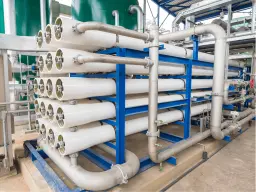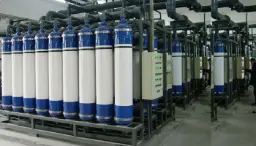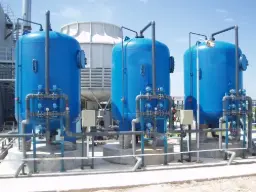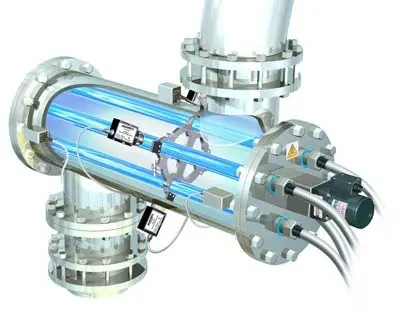Water Treatment for Brewing and Distillation Applications
Water plays an integral role in the brewing and distillation of alcoholic beverages, shaping the flavor, aroma, and overall quality of beers and spirits. From the initial mashing process, where grains are mixed with water to extract sugars, to the final proofing step, where distilled spirits are diluted to the desired alcohol content, water remains a critical component at every stage. In brewing, specific water profiles can enhance or diminish certain flavor characteristics. For instance, the crisp hop bitterness of an IPA or the smooth malty notes of a stout can be significantly influenced by the water’s mineral content, pH balance, and presence of trace elements. Meanwhile, distillers often require exceptionally pure yet carefully balanced water to ensure their spirits maintain a consistent taste and mouthfeel.
However, achieving the ideal water composition can be challenging. Municipal water supplies may contain contaminants, excess hardness, or unwanted chlorine that can all affect yeast health and fermentation outcomes. Inadequate water treatment can introduce off-flavors, reduce yield, and pose microbial risks. Producers who strive to create distinctive craft brews or refined spirits understand the importance of precisely managing these variables. That’s where Filtox comes in—delivering industrial-grade water treatment solutions tailored to breweries and distilleries of all sizes. By investing in effective water treatment, alcoholic beverage manufacturers can fine-tune their recipes, maintain consistent product quality across different batches, and reduce potential hazards associated with microbial contamination. Ultimately, high-quality water is not just an ingredient but a strategic advantage that helps brewers and distillers stand out in a crowded market.
Water Treatment Systems Used in Brewing and Distillation

Reverse Osmosis
Reverse Osmosis offers a high level of water purity by forcing water through a semi-permeable membrane. This process removes a broad range of contaminants, including dissolved solids, heavy metals, and certain microorganisms. An RO system allows producers to start with a “blank slate” before reintroducing specific minerals essential for particular beer styles or for adjusting spirit proofing.

Activated Carbon Filtration
Activated carbon filters excel at removing chlorine, organic compounds, and off-tasting or foul-smelling substances. By adsorbing these impurities, the filter helps preserve desirable taste characteristics while ensuring that essential mineral content remains largely intact.

Water Softener
Water softening resins are used to remove or replace specific ions—commonly calcium and magnesium—that cause water hardness. This technology ensures more efficient mashing in brewing applications and can help fine-tune the ionic balance needed to achieve a distillery’s signature flavor.

UV Disinfection
Using ultraviolet (UV) light to deactivate bacteria, viruses, and other pathogens provides a chemical-free method of microbial control. UV disinfection is particularly advantageous for brewers and distillers concerned about preserving delicate flavor compounds, as it leaves mineral composition unchanged.
Advantages of These Systems
- Consistent Flavor Profiles
By carefully controlling mineral levels and removing contaminants, producers can replicate the same taste in every batch. This consistency helps build consumer trust and brand reputation. - Enhanced Product Safety
Eliminating harmful bacteria, viruses, and other pathogens through UV disinfection or other methods reduces contamination risks. This is vital for maintaining strict quality assurance and meeting regulatory standards. - Reduced Maintenance Costs
Scale formation due to hard water can damage equipment over time, especially in boilers and fermenters. Proper water treatment minimizes scaling, leading to fewer breakdowns and extending the life of critical machinery. - Environmental Compliance
Adhering to local environmental regulations often requires responsible water usage and wastewater management. Effective treatment systems help breweries and distilleries meet these obligations and maintain a positive community standing.
Challenges and Solutions in Brewing and Distillation Water Management
- Challenge: Scale and Mineral Deposits
Solution: Integrating Reverse Osmosis or Ion Exchange systems can eliminate excessive calcium and magnesium, mitigating scale build-up in heating vessels and fermentation tanks. This not only improves heat transfer efficiency but also preserves the integrity of the brewing or distillation process. - Challenge: Chlorine and Chemical Residues
Solution: Activated Carbon Filtration is specifically designed to remove chlorine, chloramines, and various chemicals that can impart off-flavors. This preserves the desired sensory attributes of the final product. - Challenge: Microbial Contamination
Solution: UV Disinfection, in conjunction with proper sanitation protocols, reduces bacterial, viral, and fungal contamination without altering water’s taste or pH. This is especially important in open-air fermentation settings where microbial intrusion risks are higher. - Challenge: Maintaining Characteristic Flavors
Solution: Over-purification can sometimes strip water of beneficial minerals that contribute to the unique taste of certain beer styles or spirits. To address this, many producers use a blend of treated and untreated water or reintroduce specific minerals post-treatment. - Challenge: Wastewater and Environmental Impact
Solution: While RO systems can produce a concentrate stream, breweries and distilleries can implement wastewater recycling or disposal strategies to minimize environmental footprints. Filtox supports clients by advising on best practices for efficient water reuse and waste management.
Frequently Asked Questions (FAQs)
- How important is water treatment in craft brewing?
Extremely important. Water quality can make or break the subtle flavor notes that differentiate craft beers. Proper treatment ensures consistency and distinct character in every batch. - Does UV disinfection affect the taste of my beer or spirit?
No. UV disinfection is a chemical-free process and does not alter taste, aroma, or mineral composition. It simply inactivates microorganisms by damaging their DNA. - Can I just use distilled water for my spirits?
While distilled water is very pure, it lacks minerals that could be beneficial for fermentation or for developing unique flavor profiles. Many distillers prefer to use RO water and then reintroduce certain ions. - Is Ion Exchange the same as water softening?
Water softening is one application of Ion Exchange, primarily focused on reducing hardness. However, Ion Exchange can also target other ions to fine-tune water composition for specialized brewing or distillation needs. - How often should I test my water quality?
Testing frequency depends on production scale and local water conditions. Many producers test monthly or even weekly to maintain quality control. Regular testing helps you catch any changes in water supply before they affect the final product.